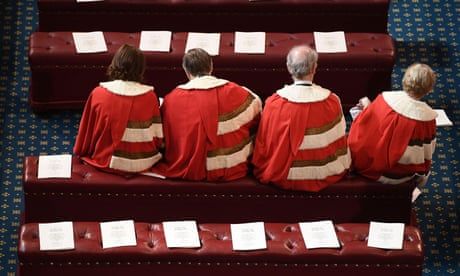
MPs are right to abolish hereditary seats in the upper house. However, Britain needs a representative second chamber fit for modern democracy
More than a century ago, the 1911 Parliament Act restricted the House of Lords’ powers under threat of a flood of Liberal appointees. The act boldly declared that “it is intended to substitute for the House of Lords as it at present exists a Second Chamber constituted on a popular instead of hereditary basis, but such substitution cannot be immediately brought into operation”. This “temporary” measure has become a historic understatement, frustrating those who seek reform – including this newspaper.
MPs took a step forward this week, voting to abolish hereditary peers in the Lords. The bill aims to end the 92 seats reserved for those inheriting titles through paternal lineage – a long-overdue decision. It completes what Tony Blair began in 1998 when ministers tried to expel those in the Lords by birth. The hereditary principle is a relic. While royalty endures ceremonially, inherited political power undermines equality, representation and accountability in government.
Do you have an opinion on the issues raised in this article? If you would like to submit a response of up to 300 words by email to be considered for publication in our letters section, please click here.
Continue reading...